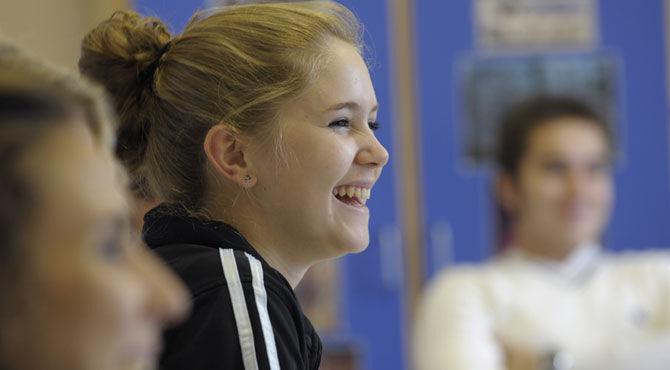How can you choose the right international school in the UK?
What factors should you take into consideration when choosing an international school in the UK for your child? ACS International School offers some useful advice to help you make the right choice.

Location, location, location
Work location will almost certainly be the main factor in choosing where to live in the UK, and which schools to consider in the area. But relocating families should also look at the bigger picture and consider if another international move is likely in a few years’ time. If so, then following an internationally recognised education programme such as the International Baccalaureate (IB), rather than a domestic, one (such as the British national curriculum) could be a sensible choice. The IB was designed to meet the needs of internationally mobile students, and enables easier transition between schools and countries. Importantly, it is also a qualification that opens doors to universities across the world.If the family might end up relocating to the US for the long term, then it might be beneficial to consider a school offering an American based curriculum (most ACS schools also provide this option).School term times
Families might be required to move to the UK at any time during the academic year, and this can pose a problem with independent and state schools which are prepared for new students to start in September. British schools also have strict cut-off dates for applications, and will often be full in year groups where there is not a new ‘intake’.An international school is geared up to manage exactly this sort of situation, as they operate a ‘rolling admissions’ policy. Students can join ACS’s schools at any time of year and the Admissions team work all year round to help families through the enquiry, visit, and application process.Settling in
For many children, the key to settling happily in a new country is finding the right school and making new school friends. International schools are especially knowledgeable in how to help children feel settled and make friends quickly. For example, ACS runs a ‘buddy’ scheme for new children and has a pro-active parent community who run welcome events, to help families settle and feel at home more quickly.All ACS Schools have dedicated counsellors, whose role is to help children to adapt and find their feet, and to provide support such as time management skills. This resource is critical in helping students cope with the stresses of relocating to a new school, and to ensure they can work well, make friends, and thrive.International mindedness
An international school will teach different subjects in an international context, according to nationalities of class members. For example, in an IB class, educators won’t teach history from the perspective of one country, but use examples of historical themes and change from across the world. Students will develop a global mind set and learn about many different cultures.And while helping students to develop impeccable spoken and written English language skills is important, ACS also has a Native Language Enrichment (NLE) programme. As the school community represents over 70 different nationalities, the NLE programme runs a comprehensive range of classes and activities to support all learners.University preparation
Access to the best universities is extremely important to parents. A traditional private school in the UK will be aiming to send its children almost exclusively to British universities. An international school will be preparing students to go to the universities of their choice throughout the world – including the UK, and the US.The IB is an ideal programme to follow if parents wish their children to be comfortable and confident to go to university and live or work with people anywhere in the world. Research conducted among university admissions officers in the UK and US, by ACS International Schools, has shown that the IB Diploma is considered the best education to help students thrive at university, as it develops qualities such as independent thinking, creativity, and self-management skills better than other post-16 qualifications. All four ACS campuses are IB World Schools with over thirty years delivering the IB programmes.Choosing the right international school
Visiting a potential school is an ideal way to see if it will be right for the child. However sometimes coming to an open day, or calling in for a personal tour might not be possible if families are currently living overseas. Here, the experience of past students or alumni can be invaluable. Parents should ask the school for evidence of its success to help them make an informed decision.For most families, international relocation is a life-affirming experience and with the right support from the employer and the school environment, employees and their children can gain enormously in terms of new friendships, fresh skills and rich cultural experiences.Find out more about ACS









































